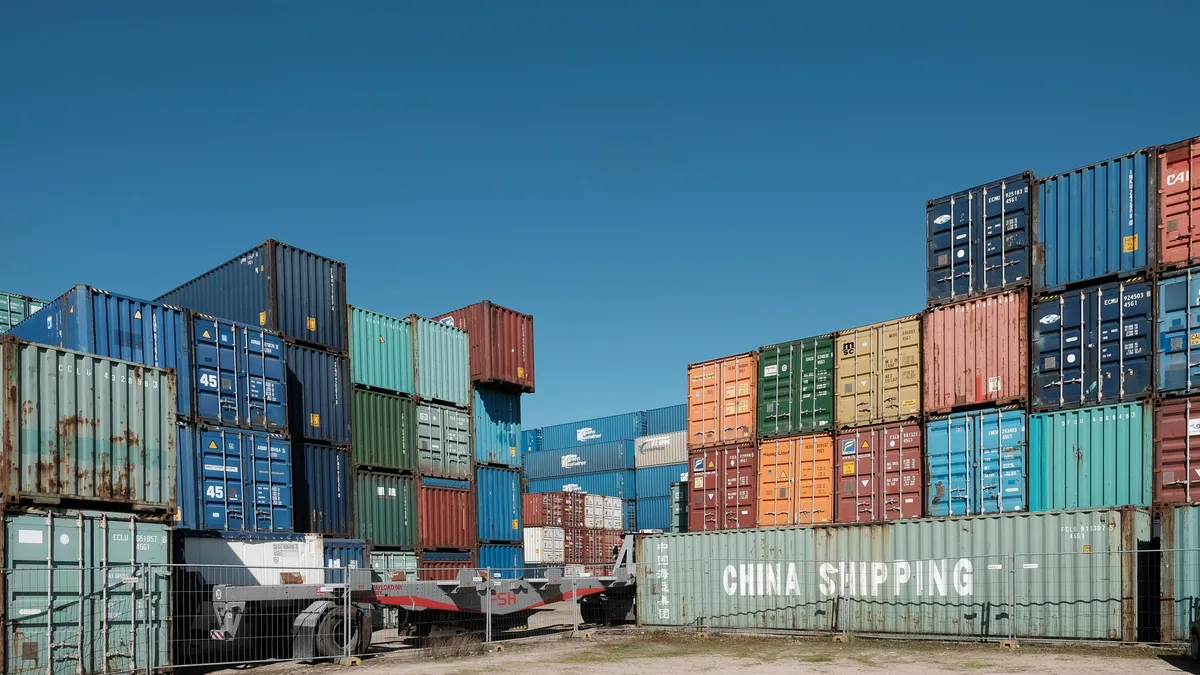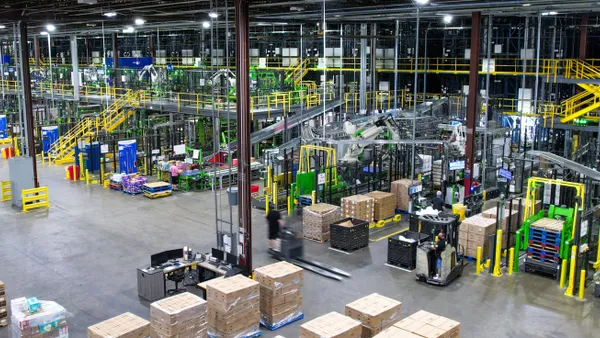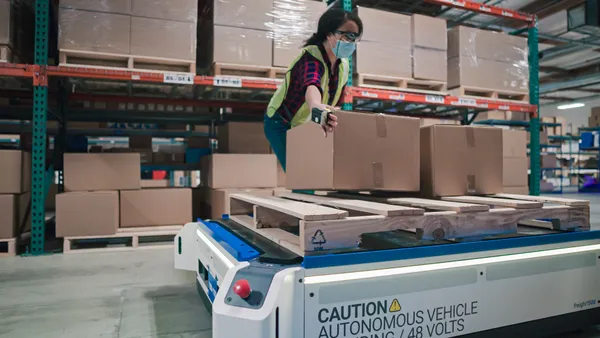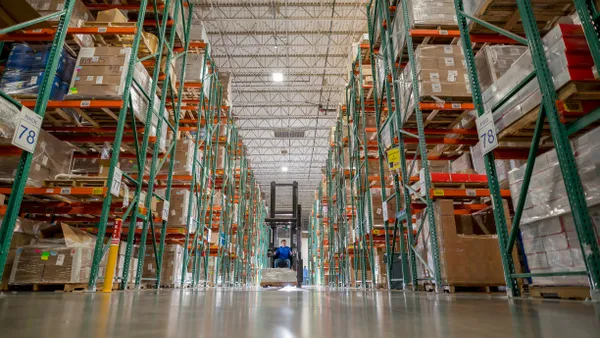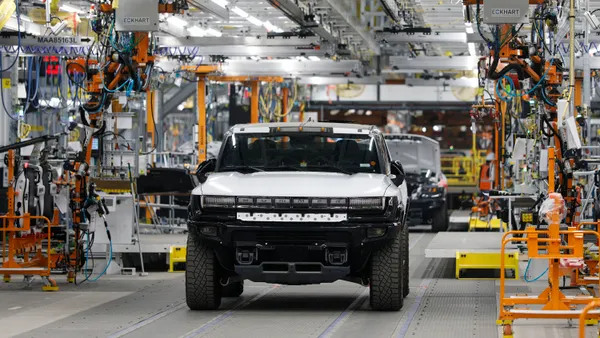Dive Brief:
- Private business inventories grew by $123.7 billion in the first quarter of 2019, according to the Bureau of Economic Analysis' (BAE) quarterly release of National Income and Product Accounts.
- This was the third quarter in a row where inventories grew by tens of billions of dollars. The phenomenon is at least partially the result of businesses importing goods to avoid tariff increases as the trade war between the U.S. and China continues.
- The inventory to sales ratio also grew year-over-year in March for manufacturing, retail and wholesalers, according to Census data.
Dive Insight:
Record-setting numbers at the nation's ports between the end of 2018 and early 2019 were the first indication importers were rushing to beat tariffs. But these numbers from BAE highlight just how much retailers, manufacturers and other businesses padded their inventories to guard against impact from the trade war. Those in the warehousing sector have seen the impact firsthand.
"So when the trade war conversations first began, kind of a year or so ago, we didn't immediately observe a drastic shift in demand, even in top import markets," Flexe CEO Karl Siebrecht told Supply Chain Dive in an email. "But after three to six months, we started to see companies reacting."
Shippers were specifically looking for extra warehouse capacity in import markets like Southern California, New York, New Jersey, Seattle and Houston, Siebrecht said.
Multiple businesses have mentioned in their earning's calls this method of bringing in more inventory ahead of tariffs or tariff increases. William Sonoma CFO Julie Whalen said last month the company's increased inventory numbers would "help alleviate some pressure from the recent List three tariff increase from 10% to 25%." MSC Industrial Direct executives mentioned a build-up of inventory as a "safety stock" ahead of tariffs on their call in April. And Five Below executives said in March their efforts to beat tariffs led to an 8.6% year-over-year increase in inventory in the fourth quarter of 2018.
"We've explicitly gotten a pop in demand from retailers, manufacturers, product companies, one example is solar panels," ;Siebrecht said. "So we're seeing it across retail product companies and manufacturers in terms of pulling in raw material to supply their manufacturing operations domestically."
How long this surge will continue is unclear. But President Donald Trump seems to think tariffs are working in his favor at the negotiating table.
"The China deal is going to work out. You know why? Because of tariffs," Trump told CNBC Monday. "Because right now China is getting absolutely decimated by countries that are leaving China, going to other countries, including our own."
Many of the U.S. companies stocking up on inventory to lessen the impact of tariffs on them and their customers would likely disagree with this framing.



